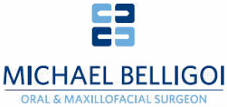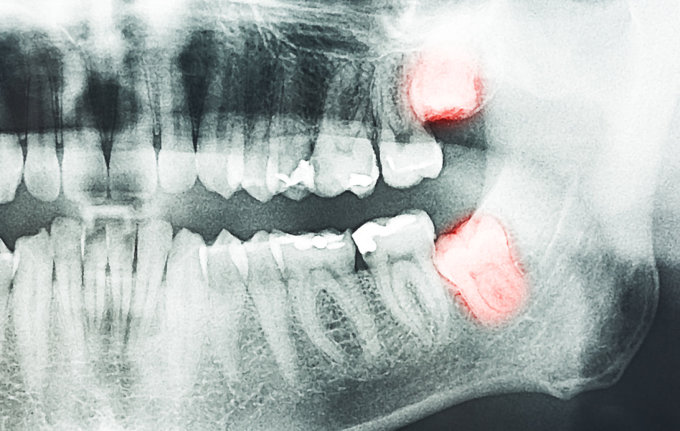The average adult has 32 teeth – 16 on the top and 16 on the bottom. The teeth in the front of the mouth (called incisors, canine, and bicuspid teeth) are ideal for grasping and biting food into smaller pieces. The back teeth (molars) are used to grind food up for swallowing.
Unfortunately the average mouth is made to hold only 28 teeth and the extra four are your third molars, or wisdom teeth. Fortunately, there is little functional need to keep them.
Should I have my wisdom teeth removed?
Wisdom teeth are the last teeth to come though. When they align properly and gum tissue is healthy, they don’t have to be removed but it isn’t unusual for wisdom teeth to grow sideways, partially emerge or even remain trapped beneath the gum and bone. Badly positioned teeth can cause many problems. When they are partially erupted, the opening around the teeth allows bacteria to grow and will eventually cause an infection which leads to swelling, stiffness, pain, and illness. The pressure from the erupting wisdom teeth can move other teeth and disrupt their natural alignment. The most serious problem occurs when tumours or cysts form around the impacted wisdom teeth, which can destroy the jawbone and healthy teeth. The solution is usually removing the wisdom teeth and the earlier they are taken out, the better. Wisdom teeth can be removed using local anaesthetic, local anaesthetic and sedation of general anaesthetic. Mr Belligoi will discuss with you the best approach to do this for your comfort and safety.
Impacted teeth
The wisdom teeth are the most common to become impacted (or stuck). Another tooth that can become impacted is the maxillary cuspid (or upper eyetooth) which is a biting tooth which has the longest root of all. They are designed to be the first teeth that touch when your jaws close together so they guide the rest of the teeth into the proper bite. The maxillary cuspid teeth are the last of the front teeth to come through (or erupt) and usually appear in our early teens. If one does get impacted, your dentist will help clear a path – the earlier the detection, the better. If teeth need to be removed, such as stubborn baby teeth, then Mr Belligoi can help. He can also work alongside an orthodontist to prompt teeth to erupt in the right place, which may involve lifting the gum and fitting a bracket and then a tiny rubber band to encourage the tooth to come down or up. This is a straightforward surgical procedure and recovery is usually swift.

